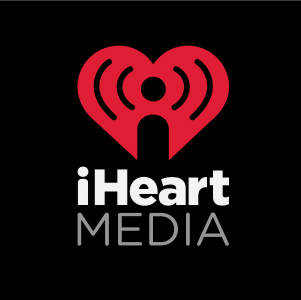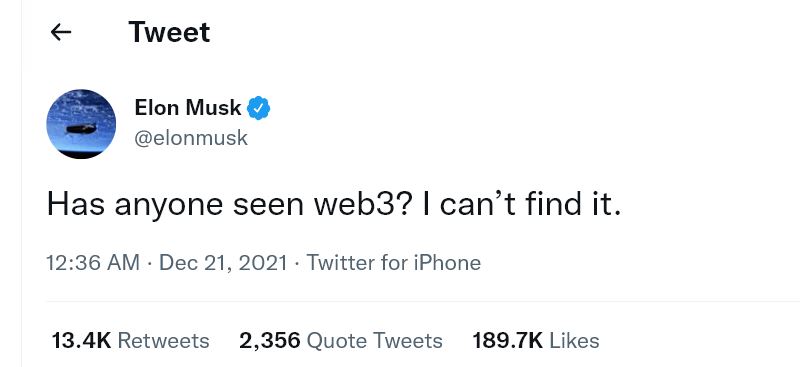
There’s a whole new world being created out there and if you were wondering what The Metaverse and web3 are after iHeartMedia’s announcement yesterday, so were we. We dug around to try to help simplify it all and help you understand where some people think interactivity is headed.
First, what is the Metaverse? The Metaverse is defined by many as a shared virtual space where the physical world converges with the virtual world. It blurs the lines between your interactions online and in real life. Look at platforms like Sandbox, Mirandus and Decentraland as examples.
Next Web3. We are in Web 2.0 today. The early days of the web were the dial up days and static websites. That was followed by more vibrant websites that were eventually consolidated by a handful of big tech companies. Web3 is a decentralized online ecosystem based on the blockchain. Platforms and apps built on web3 are not going to be owned by a central gatekeeper, like Facebook and Google for example. Early believers say web3 will be owned by the users. Those users would earn ownership by helping develop and maintain those services.
Not everyone is a believer in web3, including people like Elon Musk. He calls it more marketing than reality.


iHeartMedia is the first radio company to announce it’s investing in the Metaverse and web3. More announcements about iHeart’s plans will be made in the next few months, following what was released yesterday.
iHeart announced Wednesday that is plans to create iHeart events and experiences for listeners and music fans using the platform Roblox.
Roblox is a platform that brings users from around the world together through play as they explore millions of 3D experiences, all built by a community of global developers (watch a video about the platform Roblox HERE).
iHeart may be doing something like having a creator, or an artist, perform and iHeart listeners, followers, etc. would get exclusive access to that performance on the Roblox platform.
Here’s what CEO Bob Pittman said about iHeart’s plan. “Although there are a number of great new products for the metaverse and web3 from a wide array of creators, with our unparalleled audience reach, multiple platforms, and our trusted broadcast and podcast hosts, iHeartMedia is uniquely positioned to build the consumer awareness, understanding and demand necessary for those new products and platforms from both us and others to succeed. We see this as a unique opportunity to serve our listeners’ needs, provide an important new layer of growth for the company, and help develop the advertising and consumer potential for the metaverse and web3.”
As part of its Metaverse and web3 strategy, iHeart plans to bring immersive musical moments to its users on Roblox and launch its first tokenized community, building a new token. Tokenization helps create smooth payment experiences with satisfied customers. It also cuts out a lot of the middlemen. Tokenization drives the technology behind payment services like mobile wallets.
iHeartMedia Digital Audio Group President Conal Byrne. “In the same way in which we believed in and committed to digital radio and podcasting – and became the strong number one in both — we are big believers in the incredible potential of web3. We have already stepped into the metaverse with NFTs.”
NFT stands for non-fungible token. NFT’s are defined as a one-of-a-kind digital asset that belongs to you and you only. The most popular NFTs now include artwork and music.
Byrne says there’s much more to come. “iHeart’s place in this ecosystem — giving fans extraordinary access to the special events and influencers we provide every day of the year — is what we’re focused on building out as we work with key partners and develop an easy-to-use ramp to the metaverse and web3 for the mass market.”
If you want to learn more about web3, follow Moxie Marlinspike. He created the platform Signal. HERE he offers his thoughts on web3. If you want to better understand NFT’s The Verge is on it in detail HERE.
Whether or not all of this tomorrow-world activity translates to revenue for radio or causes a distraction remains to be seen.






Credit to Iheart, they actually take risks. Although “radio”, specifically the personalities, won’t have a place in Web3 there is an ecosystem that’s up for grabs. In the last week, there have have articles from Beasley, Cumulus and Audacy speaking about the future. Well, as usual it’s all talk. Podcasting is over for the radio companies; you don’t need a radio platform to build a successful podcast. If you’re creative, and know how to target an under-served audience you’re better off producing and marketing your own podcast as opposed to teaming up with these has-been companies because they’re going to assign you a “Program Director” who is probably north of 50, overweight, voice-tracks a show or two and is really only worried about emails and keeping their job. Look at the highest performing social media and podcast brands… none of them would be described like that.
Radio is so scared of young, vibrant personalities, so they choke down the same results (which are getting worse) rather than accept a cleanse and start the new frontier. Look at the latest “hires” from these companies; same ol’ people who are going to get the same ol’ results. Listen to the content, “It’s national ice cream day”, “Here’s another fake phone call about a blind date”, “Are you on our Facebook page yet?”… laughable, awful and predictable.
So, IHeart which famously gets torched, mostly by poor talent who just couldn’t make big things happen (announcing songs isn’t a talent), is at the forefront. Cumulus is too busy trying to sell stations. Audacy is researching a new name already, and Beasley is trying to figure out how to tell the CEO that her podcast is an embarrassment to the whole business; again, not much has changed.